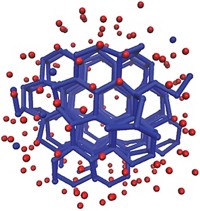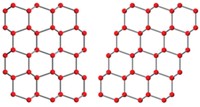Advertisement
Grab your lab coat. Let's get started
Welcome!
Welcome!
Create an account below to get 6 C&EN articles per month, receive newsletters and more - all free.
It seems this is your first time logging in online. Please enter the following information to continue.
As an ACS member you automatically get access to this site. All we need is few more details to create your reading experience.
Not you? Sign in with a different account.
Not you? Sign in with a different account.
ERROR 1
ERROR 1
ERROR 2
ERROR 2
ERROR 2
ERROR 2
ERROR 2
Password and Confirm password must match.
If you have an ACS member number, please enter it here so we can link this account to your membership. (optional)
ERROR 2
ACS values your privacy. By submitting your information, you are gaining access to C&EN and subscribing to our weekly newsletter. We use the information you provide to make your reading experience better, and we will never sell your data to third party members.
Physical Chemistry
Close-Packing Transition In Nanoclusters
Molecular beam study of argon clusters reveals size-dependent structure change from fcc to hcp
by Mitch Jacoby
December 24, 2012
| A version of this story appeared in
Volume 90, Issue 52
The structure of nanosized clusters of noble-gas atoms undergoes a transition from face-centered cubic (fcc) to hexagonal close packed (hcp) as the clusters’ size approaches 100,000 atoms, according to a study published in Physical Review Letters (DOI: 10.1103/physrevlett.109.245505). The finding resolves a long-standing discrepancy between theoretical predictions and experimental observations. It also deepens understanding of the structures of simple crystals and solid phases—prerequisites to understanding more complex ones. Computations show that weakly interacting atoms such as neon and argon prefer, energetically speaking, to adopt the hcp structure as clusters grow into crystals. But laboratory studies have long shown that the clusters solidify in the fcc structure. New work shows that the discrepancy may have resulted from experimental techniques that limit the clusters’ structure options. To overcome that limitation, Nina V. Krainyukova of the National Academy of Sciences of Ukraine and colleagues injected argon into helium in a way that enables argon atoms to coalesce into small clusters that eventually fuse into larger ones. X-ray diffraction analysis shows that the larger clusters order into the predicted hcp structure through coalescence of fcc-structured small clusters.





Join the conversation
Contact the reporter
Submit a Letter to the Editor for publication
Engage with us on Twitter